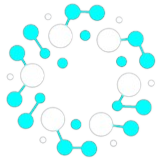| Abstract |
Brain tumors which are said to be an abnormal state or cells that deviates from normal growth pattern in the brain, are a dangerous and life-threatening condition. Identifying these tumors and classifying them are essential for ensuring the best treatment for them. Magnetic Resonance Imaging (MRI) is widely used imaging modality for brain tumor diagnosis since, it is said to provide high-resolution images of soft tissues. However, manual interpretation is time-consuming, subjective, and prone to errors. Machine learning algorithms, particularly deep learning algorithms, have shown promise for automating this task with high accuracy. The aim of the proposed method is to identify the existence of a tumor and then is to classify them based on the major three groups i.e. meningioma, glioma, and pituitary tumor if present. This paper proposes a method which uses ENet for segmentation. Then it is followed by the process of feature extraction which is implemented using Gray Level Co-occurrence Matrix. Then the final classification is performed by ensembling pre-trained models comprising of ResNeXt-50, DenseNet-169, Inception V3 for 2- class(benign and malignant) and ShuffleNet V2, DenseNet- 169,MnasNet for three class (Glioma, meningioma and pituitary) classification. This hybrid algorithm will be evaluated using a dataset containing many brain cancer inputs that can achieve better results in both tumor cell detection and location-based types prediction accurately |
